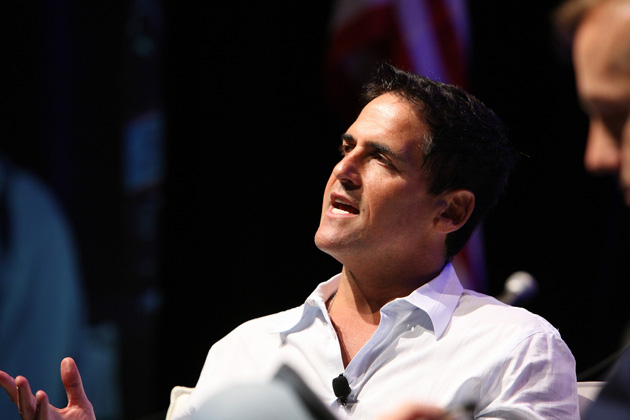
Billionaire entrepreneur Mark Cuban is usually opposed to new regulation, but he thinks there should be a law to eliminate confusion in the next Apple security controversy.
While he applauds Apple for standing up to the FBI and refusing to break into the iPhone belonging to the San Bernardino terrorists, he suggests that going forward, there should be a ruling that would clarify when a government can request a hack.
Cuban tells TechCrunch, “I am for a law that is very, very specific on when a vendor can be forced to grant the same access as Apple is being asked to do.” He is only in favor of inspecting phones related to a “terrorist event where the person is deceased.” Cuban added that the law would also apply to apps and whether they would be required to provide passwords. (The messages on Cuban’s own Cyber Dust app, self-destruct).
Yet Cuban said that based on the outdated All Writs Act, “it would be a disaster if they [Apple] agreed to comply” with the FBI’s inquiry.
Apple says that because of its upgraded operating system which links data to the passcode instead of the device, it simply does not have the capability to comply with the government’s most recent request. The information on the phone disappears after too many failed login attempts.
“We oppose this order, which has implications far beyond the legal case at hand,” wrote Apple CEO Tim Cook, in a public letter.
Cook suggests that going forward, altering its security would provide a dangerous loophole, that creating a “backdoor” to access the data would make the phone more susceptible to unauthorized hacks.
“The government is asking Apple to hack our own users and undermine decades of security advancements that protect our customers — including tens of millions of American citizens — from sophisticated hackers and cybercriminals,” said the note from Cook.
Many argue that complying with the FBI could also be deleterious for tech businesses. How would customers in other countries react to the idea of having their data potentially obtained by the U.S. government? And could other governments authorize data requests? It could be a slippery slope, suggested leaders in Silicon Valley.
Jack Dorsey, who is the CEO of both Twitter and Square, tweeted that he stands by Apple’s decision.
Google CEO, Sundar Pichai, also took to Twitter to praise Apple.
Aaron Levie, CEO of Box, quipped:
Donald Trump has in fact, spoken out against Apple’s decision.
Bloomberg reported and TechCrunch confirmed that Apple will be getting an extension on its deadline to respond to the court order.
Source: http://feedproxy.google.com/~r/Techcrunch/~3/TfcDTgJwVsw/






